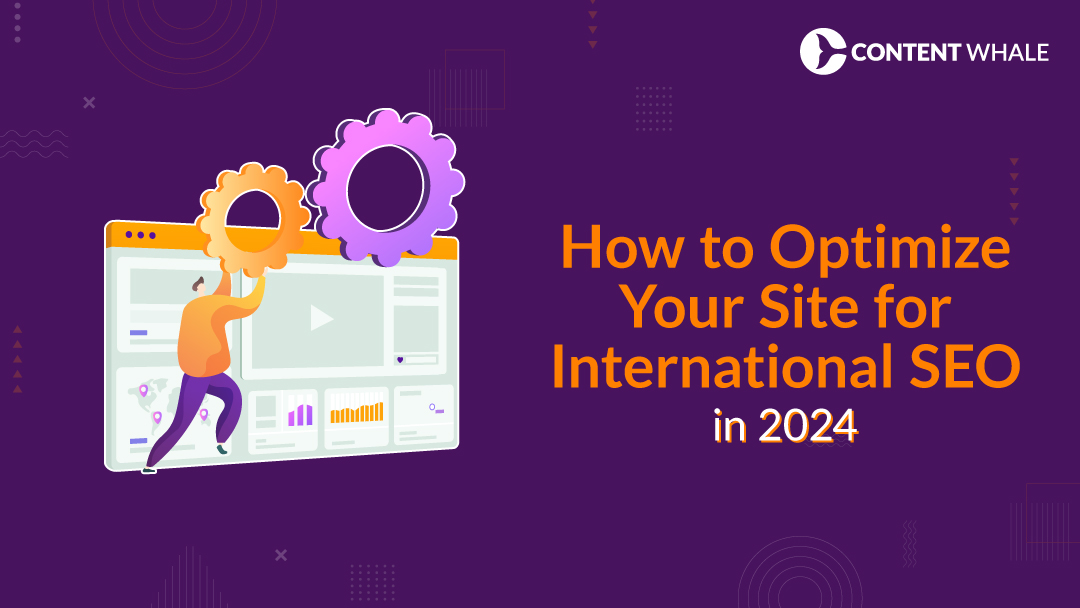Google’s algorithm plays a vital role in determining search engine rankings, making it essential for any SEO strategy. Over the years, major Google algorithm updates like Panda, Penguin, and Hummingbird have caused significant shifts in SEO practices.
Each update aims to improve search result quality, affecting how websites are evaluated and ranked. This blog explores the impact of Google’s algorithm updates on SEO, key strategies for adaptation, and tools for staying informed.
Understanding these changes is essential for maintaining and improving your website’s search engine performance.
With a brief history of significant algorithm changes, we’ll provide an overview of their effects on SEO and practical advice on how to adapt your SEO strategies accordingly.
Staying proactive and informed about these updates ensures that your website remains competitive in search results, helping you achieve better search engine rankings and overall online visibility.
Understanding Google’s Algorithm Updates
1. Definition and Purpose of Algorithm Updates
Google’s algorithm updates are essential for refining and improving search results, making them more relevant and useful for users.
These updates enhance the quality of search results by updating the criteria used to evaluate and rank websites.
2. Types of Google Algorithm Updates
There are different types of Google algorithm updates:
- Core Updates: These are broad changes that impact the overall search algorithm, affecting a wide range of websites, such as the March 2024 Core Update. Core updates usually happen a few times a year and require SEO professionals to stay vigilant and adaptable.
- Targeted Updates: These updates address specific issues such as spam, low-quality content, or user experience improvements such as the May 2024 Spam Update. Targeted updates are more frequent and can occur without prior announcement, making them unpredictable.
3. Frequency and Unpredictability of Updates
The impact of Google’s algorithm updates on SEO can be significant. Frequent and often unannounced, these updates can cause fluctuations in search engine rankings.
Websites that align with Google’s quality standards tend to benefit, while those using outdated or manipulative tactics may see declines in rankings.
Understanding the frequency and nature of these algorithm changes helps in developing robust SEO strategies.
4. Adapting to Algorithm Updates
Focusing on high-quality content, user experience, and ethical SEO practices can mitigate the risks associated with sudden algorithm shifts.
By keeping up with the latest updates and continuously improving website quality, businesses can better maintain their search visibility and performance.
To effectively adapt, SEO professionals should monitor Google algorithm updates and adjust their strategies accordingly. This involves regularly auditing website content, ensuring it meets Google’s guidelines, and prioritizing user experience.
By doing so, businesses can better navigate the dynamic landscape of search engine optimization and sustain their online presence.
Major Google Algorithm Updates and Their Impacts
1. Overview of Key Updates
Several major Google algorithm updates have significantly impacted SEO over the years. These include:
- Panda (2011): This update targeted low-quality content, penalizing sites with thin or duplicate content. It emphasized the importance of high-quality, original content.
- Penguin (2012): Penguin focused on identifying and penalizing sites using manipulative link-building tactics, such as buying links or participating in link farms. This update promoted natural link profiles.
- Hummingbird (2013): Hummingbird improved the understanding of search queries, emphasizing semantic search and the context of words. It allowed Google to better interpret user intent.
- BERT (2019): BERT (Bidirectional Encoder Representations from Transformers) enhanced the algorithm’s ability to understand the context and nuances of words in search queries, improving the relevance of search results.
2. Detailed Impact of Each Update on SEO Practices
- Panda: The impact of Google’s algorithm updates on SEO became evident with Panda. Websites with poor content quality saw significant drops in search engine rankings. SEO strategies had to shift towards producing high-quality, valuable content that met user needs and complied with Google’s standards.
- Penguin: Penguin’s emphasis on link quality forced a reevaluation of link-building practices. SEO strategies moved towards acquiring high-quality, relevant backlinks and avoiding manipulative tactics. This update highlighted the importance of ethical link-building practices.
- Hummingbird: Hummingbird’s focus on semantic search required SEO professionals to rethink keyword strategies. Instead of focusing solely on exact-match keywords, the update encouraged the use of natural language and long-tail keywords that matched user intent.
- BERT: With BERT, understanding the context of search queries became crucial. SEO strategies had to consider the nuances and context of keywords, emphasizing the importance of content that addressed the specific needs and questions of users.
3. Latest Updates in 2024 and Their Impact
- March 2024 Core Update: This core update focused on improving the understanding of user intent and context in search queries. Websites with well-structured, contextually relevant content saw a boost in their search engine rankings. SEO strategies need to prioritize comprehensive content that aligns with user search intent.
- May 2024 Spam Update: Targeting spammy practices, this update penalized sites engaging in manipulative SEO tactics, such as keyword stuffing and cloaking. Maintaining ethical SEO practices and avoiding black-hat tactics are crucial to avoid penalties.
- August 2024 User Experience Update: Emphasizing user experience, this update will prioritize sites with fast loading times, mobile optimization, and high-quality content. SEO strategies must focus on improving site speed, mobile usability, and providing a seamless user experience before this update occurs.
4. Case Studies of Websites Affected by These Updates
- Panda: Websites like eHow and Demand Media saw drastic declines in traffic due to their reliance on low-quality, mass-produced content. In response, they had to overhaul their content strategies to regain visibility.
- Penguin: Overstock.com experienced a significant drop in rankings after being penalized for manipulative link-building practices. The company had to clean up its backlink profile and adopt a more natural approach to link acquisition.
- Hummingbird: Sites focusing on providing comprehensive answers to user queries, like Wikipedia, benefited from Hummingbird. They saw improved rankings as their content matched user intent more accurately.
- BERT: Health and wellness sites providing in-depth, contextually relevant content saw improvements in rankings, as BERT better understood complex queries related to medical and health information.
- 2024 Updates: Many e-commerce sites that improved their product descriptions and focused on user reviews saw positive impacts from the March 2024 Core Update. Sites that eliminated spammy practices are seeing gains and similar will happen if sites enhanced user experience after August updates.
Understanding these major algorithm changes and their impacts helps in adapting SEO strategies to maintain and improve search engine rankings.
How Algorithm Updates Impact SEO Strategies
1. Changes in Ranking Factors and Criteria
Google’s algorithm updates often lead to changes in ranking factors and criteria, directly impacting SEO strategies. Each update adjusts the weight given to various factors such as content quality, backlinks, user experience, and mobile-friendliness.
For example, updates like Panda and Penguin placed significant emphasis on content quality and natural link profiles, respectively. These changes necessitate a shift in how SEO professionals prioritize and implement their strategies.
2. Effects on Content Quality and Relevance
The impact of Google’s algorithm updates on SEO has underscored the importance of high-quality, relevant content. Updates like BERT have further emphasized understanding user intent and context, pushing for more in-depth and informative content that addresses specific user queries.
To stay competitive, websites must produce content that not only matches search intent but also provides value and answers user questions comprehensively.
3. Importance of E-E-A-T (Experience, Expertise, Authoritativeness, Trustworthiness)
Google’s focus on E-E-A-T (Experience, Expertise, Authoritativeness, Trustworthiness) has grown with recent updates. This concept underscores the need for content that demonstrates expertise and reliability.
For instance, medical and financial websites are particularly scrutinized under these guidelines to ensure that users receive accurate and trustworthy information.
Ensuring your content and website meet these criteria is crucial for maintaining and improving search engine rankings.
4. Adaptation in Keyword Strategies and Link Building
Algorithm updates often require adjustments in keyword strategies. The shift towards semantic search with updates like Hummingbird and BERT means that focusing solely on exact-match keywords is no longer effective.
Instead, incorporating natural language and long-tail keywords that match user intent is essential.
Additionally, ethical link-building practices have become more important. Updates like Penguin penalized manipulative link schemes, prompting a move towards acquiring high-quality, relevant backlinks.
5. User Experience and Technical SEO
User experience (UX) and technical SEO have gained prominence due to algorithm changes.
Updates focusing on mobile-first indexing and page experience signal Google’s prioritization of websites that offer a seamless and engaging user experience.
This includes optimizing for mobile devices, improving site speed, and ensuring easy navigation. Websites that excel in these areas are likely to perform better in search rankings.
6. Monitoring and Adapting to Algorithm Changes
To effectively respond to algorithm changes, continuous monitoring and adaptation are necessary. SEO professionals should use tools like Google Search Console and SEMrush to track performance and identify areas for improvement.
Regular audits and updates to content and technical aspects of the website are essential to align with the latest algorithm changes and maintain search visibility.
Staying informed about Google algorithm updates and understanding their impact on SEO strategies is vital.
By prioritizing content quality, user experience, and ethical SEO practices, businesses can better navigate the dynamic nature of search engine optimization and sustain their online presence.
Strategies to Adapt to Algorithm Changes
1. Keeping Up with Google’s Guidelines and Best Practices
Adapting to Google algorithm updates requires staying current with Google’s guidelines and best practices. Regularly reviewing and implementing these guidelines ensures that your website aligns with the latest criteria.
This includes adhering to content quality standards, avoiding manipulative tactics, and ensuring technical SEO aspects like mobile-friendliness and site speed are optimized.
2. Regularly Updating and Auditing Content
Regular updates and audits of your website’s content are essential in response to algorithm changes. Outdated or irrelevant content can negatively impact search engine rankings.
Conducting periodic content audits helps identify areas for improvement or content that needs to be refreshed. Ensuring that your content remains valuable, accurate, and aligned with current search intent is crucial.
3. Focusing on User Experience and Mobile Optimization
User experience (UX) and mobile optimization have become increasingly important due to recent Google algorithm updates. Websites must offer a seamless and engaging user experience, particularly on mobile devices.
This involves improving site speed, ensuring easy navigation, and providing a responsive design.
Google’s mobile-first indexing means that the mobile version of your site is considered the primary version, making mobile optimization critical for maintaining high search engine rankings.
4. Building High-Quality Backlinks and Avoiding Black-Hat SEO Tactics
Building high-quality backlinks remains a cornerstone of effective SEO strategies. Acquiring backlinks from reputable and relevant websites can significantly boost your rankings.
However, it’s important to avoid black-hat SEO tactics like buying links or participating in link schemes, as these can lead to penalties from algorithm updates like Penguin.
Focus on natural link-building practices, such as creating valuable content that others want to link to.
5. Monitoring Algorithm Updates and Staying Informed
Staying informed about the latest Google algorithm updates is crucial for adapting your SEO strategies effectively. Utilize tools like Google Search Console, Moz, and SEMrush to monitor changes and analyze their impact on your website.
Following reputable SEO blogs and forums can also provide insights and updates on recent algorithm changes and best practices.
Proactive adaptation to algorithm changes is key to sustaining SEO success. By regularly updating content, focusing on user experience, building high-quality backlinks, and staying informed about updates, you can maintain and improve your website’s search engine rankings.
Tools and Resources for Monitoring Algorithm Updates
1. Recommended Tools
Several tools are essential for monitoring Google algorithm updates and their impact on your SEO strategy:
- Google Search Console: This tool provides insights into how Google views your site, including indexing status, search queries, and potential issues. It’s invaluable for tracking algorithm changes and understanding their direct impact on your search engine rankings.
- Moz: Moz offers a suite of SEO tools that include site audits, rank tracking, and backlink analysis. Moz’s algorithm update tracker helps you stay informed about the latest updates and their potential effects on your site.
- SEMrush: SEMrush provides comprehensive SEO analytics, including keyword tracking, site audits, and competitor analysis. Its algorithm update tool tracks changes and alerts you to shifts in rankings that may be due to Google algorithm updates.
2. How to Use These Tools to Track and Analyze Updates
Using these tools effectively requires regular monitoring and analysis:
- Google Search Console: Regularly check for indexing issues, search performance metrics, and manual actions. Pay attention to any sudden changes in traffic or rankings, which may indicate the impact of an algorithm update.
- Moz: Use Moz’s rank tracking feature to monitor your position in search results over time. The tool’s alerts for algorithm changes can help you correlate any ranking shifts with specific updates.
- SEMrush: Conduct regular site audits to identify and fix SEO issues. Use the keyword tracking feature to observe changes in keyword performance, and analyze competitor data to understand how updates are affecting your industry.
3. Staying Informed Through SEO Blogs and Forums
Staying updated with the latest Google algorithm updates is critical. Follow reputable SEO blogs and forums for insights and discussions:
- Search Engine Land: This blog provides news and analysis on the latest algorithm updates, SEO trends, and industry changes.
- Moz Blog: Offers in-depth articles, case studies, and tips on adapting to algorithm changes.
- Search Engine Journal: Provides comprehensive coverage of SEO news, including updates on Google’s algorithms and practical advice for maintaining SEO performance.
Regularly visiting these resources helps you stay ahead of changes and adapt your SEO strategies accordingly.
By leveraging tools like Google Search Console, Moz, and SEMrush, and staying informed through industry blogs and forums, you can effectively manage the impact of Google’s algorithm updates on SEO.
Conclusion
Understanding the impact of Google’s algorithm updates on SEO is essential for maintaining strong search engine rankings and an effective online presence.
These updates, whether they are core changes or targeted adjustments, significantly influence how websites are evaluated and ranked.
Staying proactive and adaptable in your SEO strategies ensures that you remain compliant with Google’s guidelines and continue to perform well in search results.
Regular content audits, focusing on user experience, and ethical link-building practices are key to adapting successfully to algorithm changes.
Utilizing tools like Google Search Console, Moz, and SEMrush helps in tracking and analyzing the effects of updates, enabling timely adjustments to your strategies.
Staying informed through reputable SEO blogs and forums also provides valuable insights and keeps you updated on the latest developments.
By consistently monitoring and adapting to Google algorithm updates, you can sustain and enhance your website’s performance, ensuring long-term SEO success.
FAQs
What is a Google algorithm update?
A Google algorithm update is a change or improvement made to Google’s search algorithm, which determines how websites are ranked in search results.
These updates are designed to enhance search result quality, relevance, and user experience by refining how content is evaluated and indexed.
Understanding the impact of Google’s algorithm updates on SEO is crucial for adapting strategies to maintain and improve search engine rankings.
How often does Google update its algorithm?
Google updates its algorithm frequently, with major core updates occurring several times a year and smaller, targeted updates happening more regularly.
These algorithm changes can significantly affect SEO strategies, requiring continuous monitoring and adjustments to maintain optimal performance in search results.
Which Google algorithm updates are the most significant?
Some of the most significant Google algorithm updates include:
- Panda (2011): Focused on content quality, penalizing thin or duplicate content.
- Penguin (2012): Targeted manipulative link-building practices.
- Hummingbird (2013): Enhanced understanding of search query context.
- BERT (2019): Improved interpretation of complex search queries.
- Recent March Core Update (2024): Focused on improving the understanding of user intent and context in search queries.
These updates have profoundly influenced SEO strategies and search engine rankings.
How can I stay updated on algorithm changes?
Staying updated on Google algorithm updates involves using tools like Google Search Console, Moz, and SEMrush, which provide insights and alerts about changes.
Additionally, following reputable SEO blogs and forums, such as Search Engine Land and Moz Blog, can keep you informed about the latest updates and best practices for adapting your SEO strategies.
What should I do if my website is affected by an algorithm update?
If your website is affected by a Google algorithm update, start by reviewing Google’s guidelines to identify any areas of non-compliance.
Conduct a comprehensive audit of your content and technical SEO aspects.
Focus on improving content quality, user experience, and ethical link-building practices.
Using tools like Google Search Console can help identify specific issues and track improvements, aiding in recovery and maintaining strong search engine rankings.





